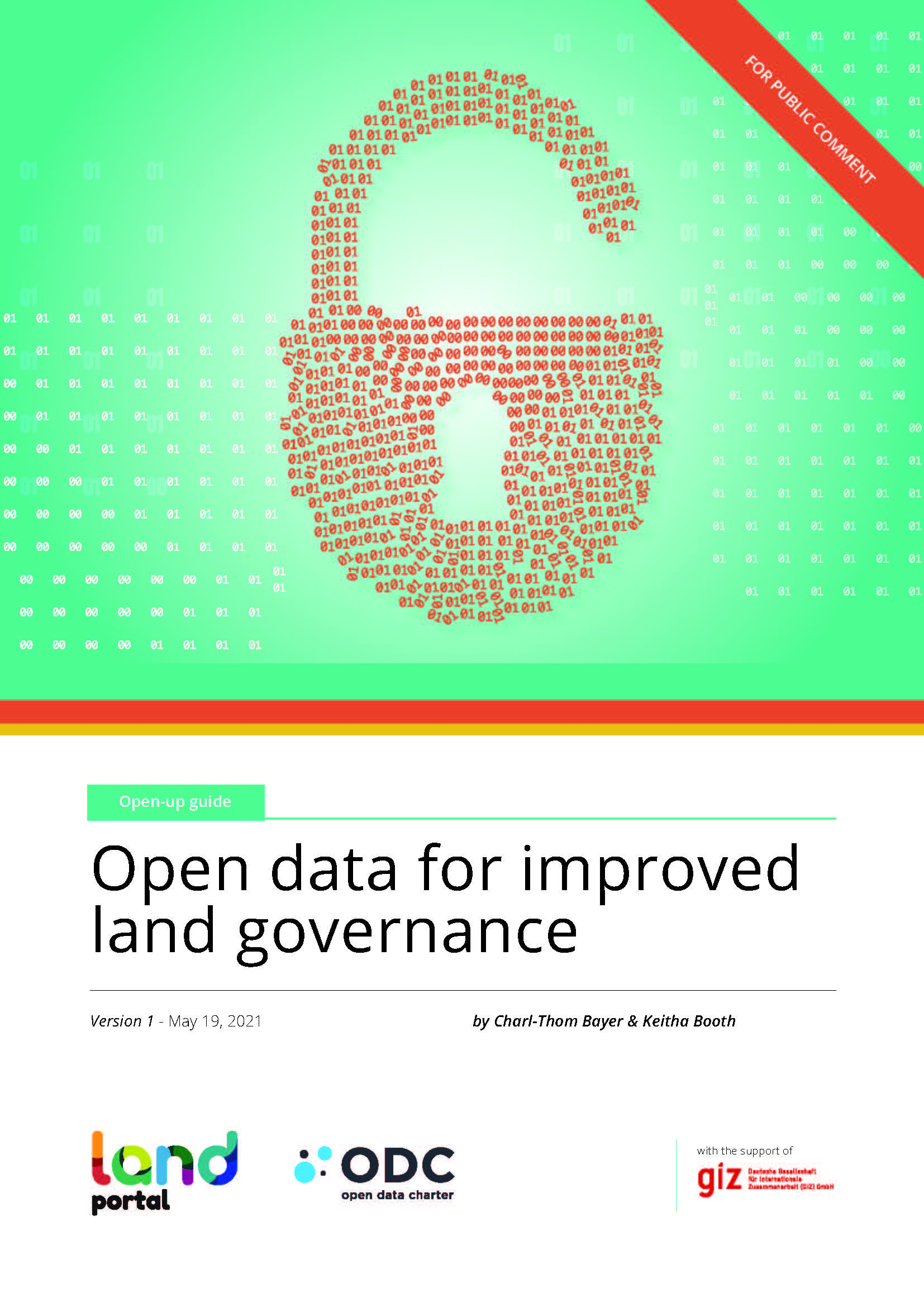Resource information
The period for public comments is now closed. Thank you to all those who submitted feedback. The revised version is available here.
This Open Up Guide on Land Governance is a resource aimed to be used by governments from developing countries to collect and release land-related data to improve data quality, availability, accessibility and use for improved citizen engagement, decision making and innovation. It sets out:
-
Key datasets for land management accountability, and how they should be collected, stored, shared and published for improving land governance and transparency;
-
Good data policies and frameworks, including metadata, standards and governance frameworks if available;
-
Existing gaps or challenges in the policies and frameworks; and
-
Use cases from real-life examples to illustrate the potential impact and transformation this type of data can provide in local contexts.
The Open Up Guide has been prepared for use by national and local government agencies with a mandate for or an interest in making their land governance data open and available for others to re-use. Land governance data generally comprises the data and information that agencies collect as they carry out their core land administration functions of land tenure, use, development and value. Some countries already collect and manage their land governance data in open and re-usable formats. Others may be seeking advice on how to start, how to expand their activities or how to test what they do against best practice.
Open land governance data, published in accordance with a government’s law and regulations, provides efficient and transparent government services and enables individuals, communities and businesses to run their lives ethically and with integrity.
The Guide is also intended to assist communities monitoring whether environmental protections are being upheld, and to support rights claims over geographical areas inhabited for generations; and for civil society organisations that can make use of land governance data to understand patterns of land deals, support environmental and social advocacy, and investigate and address corruption.

